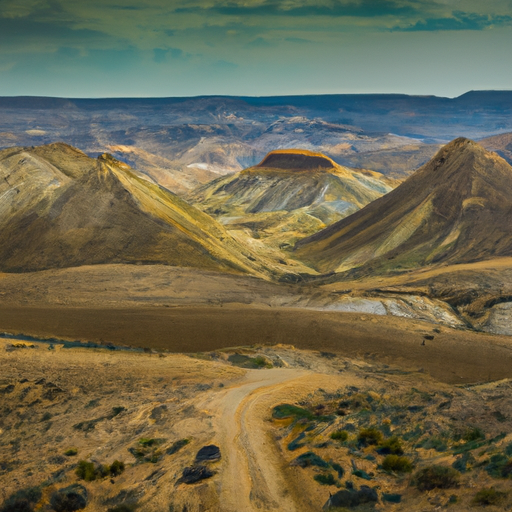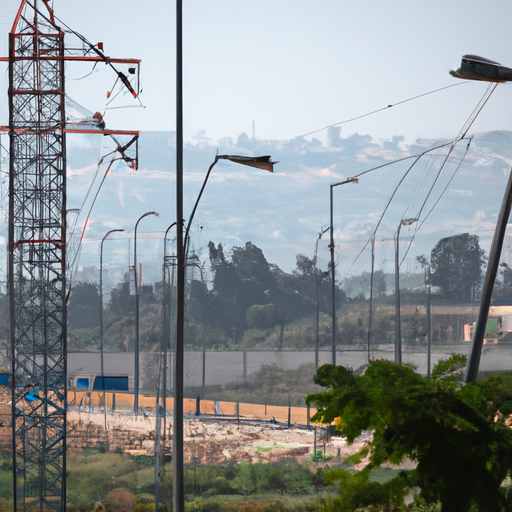A detailed exploration on the Israeli environmental conservation efforts, focusing on the strategies implemented, the challenges faced and the solutions adopted. The blog post discusses the importance of environmental conservation, shedding light on the unique Israeli context.
1. The Greening of the Desert: How has Israel transformed barren lands into productive ecosystems?
Israel’s remarkable success in transforming barren lands into productive ecosystems can be attributed to its innovative approaches, strategic planning, and unwavering commitment to environmental conservation. Through the implementation of reforestation initiatives, such as planting millions of trees in the Negev Desert, Israel has significantly increased vegetation cover and biodiversity in once desolate areas. By focusing on sustainable land management practices, Israel has been able to revitalize degraded lands and create thriving ecosystems where life was once scarce.
Moreover, Israel’s utilization of advanced irrigation techniques has played a crucial role in the greening of the desert. The country’s expertise in drip irrigation systems, developed to maximize water efficiency in arid environments, has enabled the successful cultivation of crops in regions with limited water resources. By harnessing technology and innovation, Israel has been able to overcome the challenges posed by water scarcity and create sustainable agricultural practices in previously uninhabitable areas.

1. A photograph depicting the transformation of the Negev desert into a lush, green landscape.
2. ‘Water is life’: How has Israel revolutionized water conservation?
Israel’s innovative approaches to water conservation have positioned the country as a global leader in efficient water management practices. With a deep understanding of the critical importance of water in sustaining life and supporting agriculture, Israel has revolutionized water conservation through a combination of technology, policy, and education initiatives.
- Maximizing Water Efficiency through Drip Irrigation:
One of the key pillars of Israel’s water conservation strategy is the widespread adoption of drip irrigation systems. Developed in Israel, these systems deliver water directly to the roots of plants, minimizing wastage and maximizing efficiency. By precisely controlling the amount of water delivered to crops, Israel has been able to significantly reduce water usage in agriculture while maintaining high crop yields. This technology has not only transformed farming practices in Israel but has also been shared with countries facing water scarcity around the world. - Harnessing the Power of Desalination:
Recognizing the importance of diversifying water sources, Israel has invested heavily in desalination technology. With a significant portion of its drinking water now coming from desalination plants along the Mediterranean coast, Israel has been able to secure a stable and sustainable water supply for its population. By turning seawater into fresh water, Israel has mitigated the impact of droughts and reduced its dependence on traditional freshwater sources, ensuring water security for its citizens.
3. What challenges does Israel face in its environmental conservation efforts?
- Limited Water Resources:
Israel’s arid climate and limited water resources present a significant challenge to its environmental conservation efforts. With a growing population and increasing demand for water across various sectors, including agriculture, industry, and households, Israel faces the constant pressure of balancing water supply and demand. The scarcity of freshwater sources exacerbates the challenge, requiring innovative solutions to ensure sustainable water management practices. - 2. Land Degradation and Desertification:
The expansion of urban areas, agricultural practices, and industrial activities have contributed to land degradation and desertification in certain regions of Israel. Soil erosion, deforestation, and habitat destruction are some of the key environmental issues resulting from unsustainable land use practices. Addressing these challenges requires a comprehensive approach that integrates land conservation, reforestation efforts, and sustainable land management practices to preserve ecosystems and biodiversity.

3. A photo illustrating the challenges posed by rapid urbanization and industrialization on Israel’s natural resources.
4. The Intersection of Innovation and Sustainability: How is Israel leveraging technology for environmental conservation?
Israel has positioned itself as a global leader in leveraging technology to drive environmental conservation efforts, showcasing a remarkable intersection of innovation and sustainability. Through a combination of cutting-edge technologies and forward-thinking initiatives, Israel has been able to address environmental challenges and promote sustainable practices across various sectors.
- 1. Water Technologies:
One of the most notable areas where Israel excels in leveraging technology for environmental conservation is in water management. With its expertise in water technologies, Israel has developed innovative solutions to maximize water efficiency, reduce wastage, and increase water availability in arid regions. Technologies such as drip irrigation, desalination plants, and water recycling systems have played a significant role in ensuring sustainable water use and conservation, not only within Israel but also in sharing these solutions with other water-stressed regions around the world. - 2. Renewable Energy:
Israel has also made significant strides in harnessing renewable energy sources to reduce its carbon footprint and promote environmental sustainability. The country has invested in solar energy technologies, wind power, and other renewable energy sources to diversify its energy mix and decrease reliance on fossil fuels. By embracing clean energy solutions, Israel is not only contributing to the global fight against climate change but also creating a more sustainable energy future for its citizens.
Israel’s commitment to environmental conservation is commendable and serves as a potential model for other countries. The nation’s ability to combine innovation with sustainability is a testament to the possibilities of harmonious co-existence between man and nature. It is hoped that the lessons learned from Israel’s journey in environmental conservation will inspire and guide others in this global quest.
